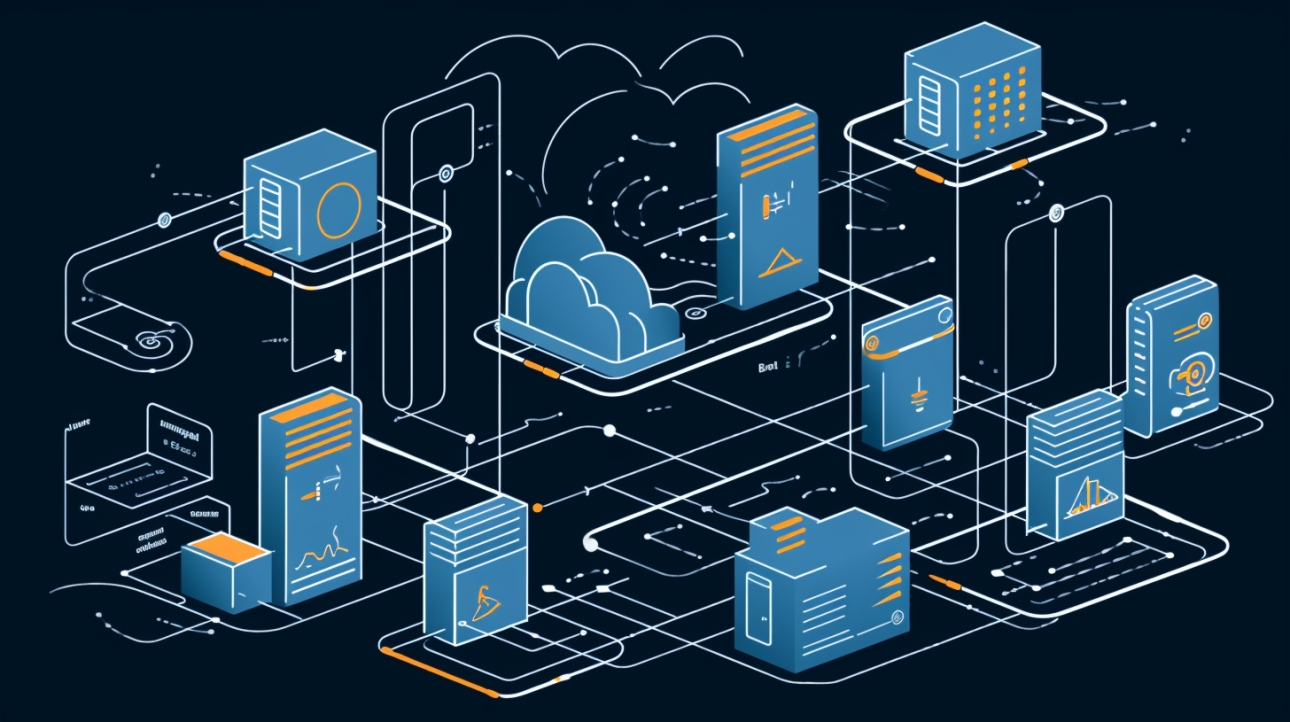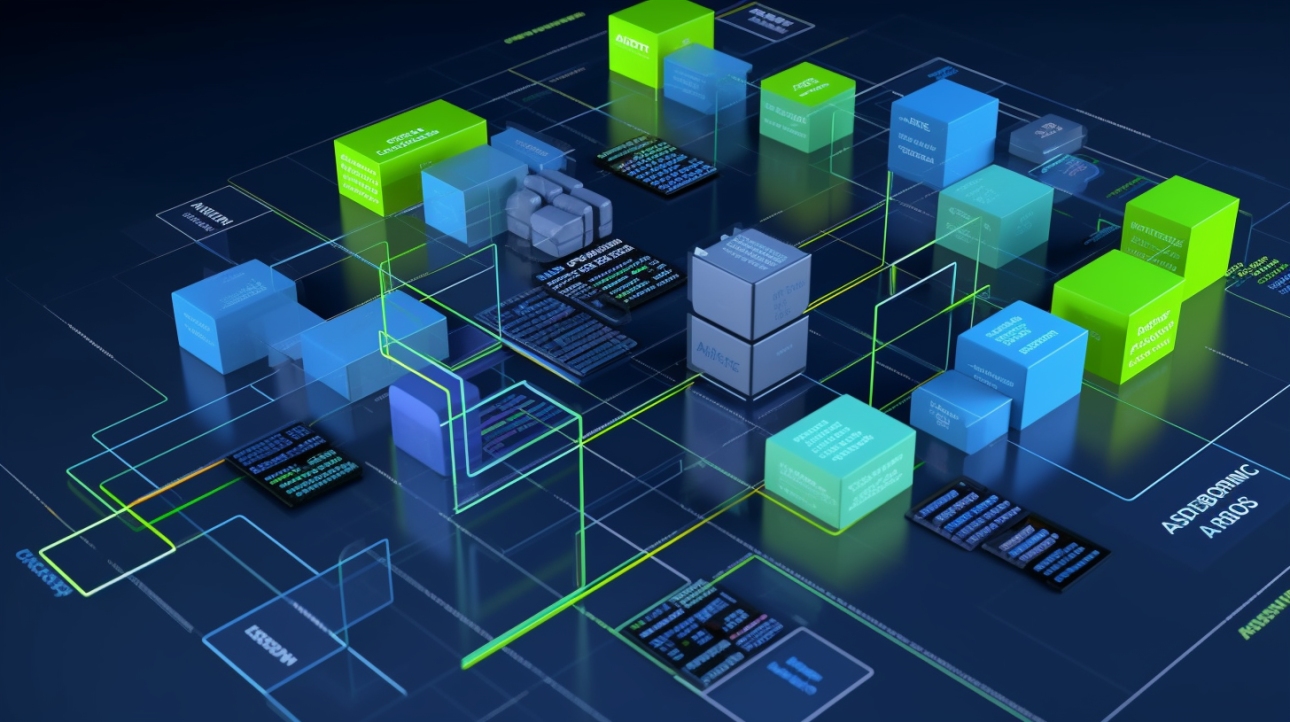Cloud computing has revolutionized the way we develop, deploy, and manage applications, offering scalability, flexibility, and cost-effectiveness.
By mastering cloud computing principles, you can build cutting-edge applications, manage complex infrastructure, and unlock a world of opportunities in the ever-evolving tech landscape.
Whether you’re aspiring to become a cloud developer, architect, or DevOps engineer, a strong foundation in cloud computing is essential for success.
Finding the perfect cloud computing course on Udacity can be overwhelming, given the wide array of options available.
You’re looking for a program that not only covers the fundamental concepts but also provides hands-on experience with popular cloud platforms like AWS, Azure, or Google Cloud.
You want a course that aligns with your career goals and equips you with the skills needed to thrive in the competitive cloud computing industry.
Based on our analysis, the Cloud Developer Nanodegree stands out as the best overall cloud computing course on Udacity.
This comprehensive program provides a deep dive into cloud development principles, covering topics like serverless computing, microservices, and containerization.
You’ll gain practical experience working with AWS, one of the leading cloud platforms, and build a portfolio of projects to showcase your skills.
This is just one of the many exceptional cloud computing courses offered by Udacity.
To help you find the perfect fit for your learning style and career aspirations, we’ve curated a list of other top-rated programs.
Keep reading to explore more options and embark on your journey to becoming a cloud computing expert.
Cloud Developer Nanodegree
This Udacity Cloud Developer Nanodegree equips you with the skills to thrive in the world of cloud computing.
You start with the fundamentals of AWS, learning about servers, storage, security, and networking.
You even get to build a static website to apply your newfound knowledge.
Next, you’ll dive into full-stack application development on AWS.
You’ll master the creation of REST APIs, learn how to work with AWS databases and storage, and become proficient in deploying applications securely.
This Nanodegree also introduces you to front-end development, teaching you how it interacts with the back-end to create seamless user experiences.
You then transition into the exciting world of microservices.
You’ll gain a deep understanding of microservice design principles and best practices, learning how to break down large applications into smaller, more manageable components using tools like Docker and Kubernetes.
You’ll even gain practical experience by refactoring a monolithic application into a microservices architecture, making it more scalable and adaptable.
Finally, you’ll explore the cutting-edge realm of serverless technologies with AWS Lambda.
You’ll acquire the ability to develop and deploy serverless applications, including building REST APIs and implementing event-driven architectures.
Security remains paramount, so you’ll also learn how to implement robust authentication and security measures for your serverless applications.
Cloud Native Application Architecture Nanodegree
This Udacity Nanodegree program equips you with the skills to build and manage applications designed specifically for the cloud.
You begin with the fundamentals of cloud-native architecture, exploring how to design applications for scalability and reliability in cloud environments.
You then delve into container orchestration using Kubernetes, a powerful tool for managing application deployment in the cloud.
The program guides you through implementing message passing, a crucial technique for building distributed systems that communicate seamlessly.
You explore different message passing methods and discover how to adapt existing applications to this architecture.
You then explore the concept of observability, learning how to monitor and troubleshoot your cloud-native applications effectively.
You learn about tools like Grafana for building dashboards that track essential metrics, and you master concepts like SLOs (Service Level Objectives) and SLIs (Service Level Indicators) to assess the health of your applications.
Finally, you address the critical aspect of microservices security.
You learn about common threats to cloud-native applications and explore the STRIDE method for threat modeling.
The program teaches you how to strengthen your Docker and Kubernetes environments to prevent attacks and how to perform software composition analysis, ensuring the security of your application’s dependencies.
You finish by learning about runtime monitoring and incident response, essential skills for swiftly detecting and addressing security threats.
Cloud Computing for Business Leaders Nanodegree
Cloud computing is changing how businesses work, and this Udacity Nanodegree helps you, as a business leader, use it to your advantage.
You’ll learn why cloud computing is important, how it can help your company, and how to get your team on board.
You’ll also discover how to create a strong cloud governance model, which keeps your cloud resources safe and organized.
Imagine learning from someone who’s been there and done that – that’s what you get with Sanjay Agrawal, your instructor.
With over 20 years of experience at companies like AWS, Microsoft, and Sun Microsystems, he’s helped many CxOs use new technology.
You’ll even see a real-world example – Bintoso’s Cloud Transformation – showing how businesses succeed with cloud strategies.
This course isn’t just about theory; you’ll learn practical skills you can use right away.
You’ll learn how to build a team that understands and uses cloud technology effectively.
And you’ll gain the confidence to make smart decisions about cloud computing for your company’s future.
AWS Cloud Architect Nanodegree
This program equips you with the skills to design and build robust and secure systems on the AWS platform.
You’ll delve into the essentials of AWS, including concepts like Availability Zones and Regions, which help you build systems that can handle disruptions.
You’ll also discover how to design systems that can handle a large number of users simultaneously, ensuring smooth performance even during peak times.
Security is paramount in today’s digital landscape, and this program addresses it head-on.
You’ll gain a comprehensive understanding of securing access to cloud services and safeguarding data stored in the cloud.
You’ll gain practical experience working with widely used AWS services such as EC2 (Elastic Compute Cloud) for creating virtual servers and S3 (Simple Storage Service) for storing your data.
You’ll also explore security groups, which act as gatekeepers, controlling access to your systems, and learn how to encrypt your data to ensure its confidentiality.
The program goes beyond the basics, introducing you to advanced concepts like serverless computing with Lambda functions, empowering you to build scalable and efficient applications.
To further enhance your career prospects, the program includes a career services component.
This valuable resource helps you optimize your LinkedIn profile and GitHub portfolio, making you stand out to potential employers.
You’ll learn how to showcase your newly acquired AWS Cloud Architect skills effectively, increasing your visibility and attractiveness in the job market.
Cloud DevOps Engineer Nanodegree
This program equips you with the skills needed to excel in the booming field of cloud DevOps, guided by industry experts like Justin Lee, a platform engineer from Silicon Valley, and Kesha Williams, an Alexa Champion and software engineering manager at Chick-fil-A.
The program begins by immersing you in the fundamentals of cloud computing, with a focus on Amazon Web Services (AWS).
You’ll explore crucial concepts like server management, storage options, robust security measures, and the essentials of networking.
You’ll even get your hands dirty deploying your very own static website on AWS.
Next, you’ll conquer Infrastructure as Code (IAC) using AWS CloudFormation.
You’ll learn to design infrastructure diagrams, provision networks, manage servers and security groups, and ultimately deploy a highly available web application - all through code.
The program then introduces you to the world of microservices at scale, leveraging AWS and the power of Kubernetes.
You’ll dive into using containers for DevOps on AWS and discover how to deploy and manage microservices effectively with Kubernetes.
The skills you gain culminate in an exciting project where you’ll operationalize a real-world microservice for a coworking space.
Finally, you’ll master the principles and practices of CI/CD (Continuous Integration and Continuous Delivery), a cornerstone of modern software development.
You’ll learn to construct automated pipelines, streamlining your development workflow and guaranteeing the delivery of top-tier code.
You’ll then solidify your understanding by applying these concepts to a movie picture pipeline project.
Cloud Developer using Microsoft Azure Nanodegree
This Udacity Nanodegree program equips you with the skills to build, deploy, migrate, and monitor applications on Microsoft Azure.
You gain practical experience with essential tools like Azure Functions and Azure Storage, preparing you for the AZ-204 Azure Developer Associate Expert certification.
The program guides you through a structured learning journey covering Azure’s compute services, storage options, security features, and application monitoring.
You dive into the intricacies of virtual machines, databases, and storage accounts.
You learn how to secure your applications and keep them running smoothly.
You discover the power of microservices and how to build scalable, cost-effective applications using Azure Functions for serverless computing.
You explore various deployment methods, including Azure DevOps.
You also learn how to migrate existing applications to Azure, making it an ideal choice for developers modernizing older projects.
Finally, you learn how to optimize your LinkedIn profile and GitHub portfolio to attract potential employers.
This program provides the technical expertise and career support you need to succeed in the cloud computing world.
Cloud DevOps using Microsoft Azure Nanodegree
This Udacity Nanodegree program teaches you how to manage cloud applications using Microsoft Azure.
You will learn from experienced instructors like Erick Galinkin, a security expert, Noah Gift, an author of books on Python for DevOps, and Nathan Anderson, a DevOps engineer.
The program is broken down into four courses and takes only two months to complete.
The first course introduces you to Azure Infrastructure and teaches you the best practices for DevOps and how to deploy a web server on Azure.
Next, you will delve into Agile Development principles and learn how to set up a Continuous Integration/Continuous Delivery (CI/CD) pipeline within the Azure environment.
You will then explore Quality Assurance techniques, including performance testing, functional UI testing with Selenium, and integration testing with Postman.
You will also learn how to use Azure Observability tools to monitor your applications.
Finally, you will learn how to optimize your LinkedIn profile and GitHub page to showcase your new skills to potential employers.
When you finish the program, you will be prepared to take the Microsoft AZ-400 DevOps Engineer Expert certification exam, a valuable asset for a career in cloud computing.
Cloud Architect using Microsoft Azure Nanodegree
This Udacity Nanodegree program teaches you the skills to become a proficient Azure Cloud Architect.
You learn how to build and manage cloud infrastructure in Microsoft Azure, starting with the basics of Azure Cloud Capabilities.
This includes designing for backup and recovery and migrating applications and data from your on-premises infrastructure to the Azure Cloud.
You even get practical experience through a hands-on project to solidify your skills.
Next, you’ll learn cost optimization and monitoring strategies for your Azure resources.
This involves understanding how to monitor costs, maximize operational efficiency, and utilize automation to streamline your cloud processes.
You’ll gain a deep understanding of Azure Cloud Security, covering crucial aspects such as identity, authentication, infrastructure, and network security.
The course then equips you with the knowledge to protect and monitor your cloud resources and secure entire enterprise environments.
The program goes beyond technical skills by providing a dedicated Career Services module.
You receive guidance on optimizing your LinkedIn and GitHub profiles, making you stand out to potential employers.
You acquire valuable skills applicable to various roles, including Azure Security Engineer, DevOps Engineer, and of course, Azure Cloud Architect, making you a competitive candidate in the cloud computing job market.
Also check our posts on:








